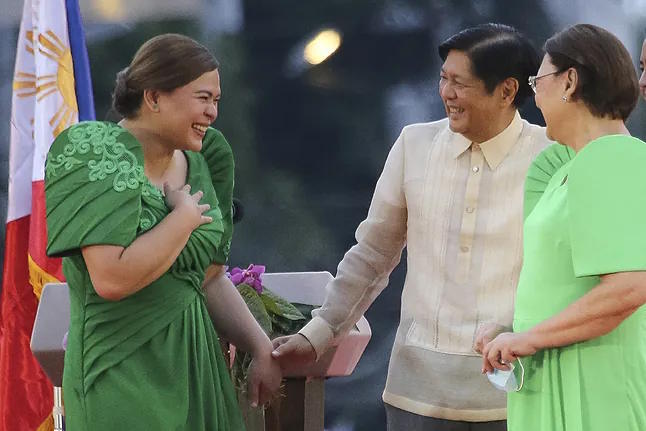In the Philippines, an archipelago with 7,641 islands where the son of a dictator who looted the state's coffers rules, municipal elections were held this month. The winner for the mayoralty of the country's third most populous city, Davao, was a former president who is currently imprisoned in The Hague (Netherlands) on charges of crimes against humanity.
In the Buddhist kingdom of Thailand, after parties aligned with the Army and royalty prevented a new prime minister from emerging from the progressive party that won the 2023 elections, the current prime minister is the daughter of a former leader who was overthrown in a military coup and spent over 15 years in exile in Dubai, where he sought refuge after a corruption conviction.
In Cambodia, after serving 38 years as prime minister and winning by a landslide in fake elections, the omnipresent supreme leader announced his retirement in 2023, passing the power to his eldest son, who was the Army chief. In Indonesia, the latest elections were won by a general, former son-in-law of a brutal dictator, who had been expelled from the Army on accusations of kidnapping and torturing pro-democracy activists, while the outgoing ruler's son was placed in the vice presidency.
From the Shinawatra clan of Thailand to the Sukarno lineage of Indonesia, passing through the powerful Marcos and Duterte families in the Philippines. Political dynasties resurface time and time again in Southeast Asia, where harsh hereditary dictatorships persist alongside some absolute monarchies (such as Brunei), but there are also countries trying to disguise themselves as democracies, where voters tend to choose authoritarian leaders from influential families that integrated the economic and political elites after the independence of these nations.
Let's start in the Philippines. In 2022, on the 50th anniversary of the martial law decreed by the late President Ferdinand Marcos, his son Marcos Jr (67 years old), known to his followers as Bongbong, won the elections, returning power to one of the most influential families in the country, whose tentacles reach everywhere: Imee, the president's older sister, is a senator. A nephew is a congressman, another a governor. And several family members also hold public office.
One of Marcos's great successes was his ability to rewrite his father's dark legacy as the golden years of the Philippines, where peace and economic prosperity abounded. He turned the 70,000 prisoners, 34,000 tortured, and 3,240 dead during his father's regime - according to estimates by Amnesty International - along with the over $10 billion that his family embezzled from aid funds and distributed through a maze of accounts in Switzerland and other tax havens, into rumors and lies.
The second most powerful person in the Philippines, the vice president, is Sara Duterte-Carpio, daughter of the controversial former president Rodrigo Duterte, who was arrested on March 11 at Manila airport at the request of the International Criminal Court (ICC) and transferred to the detention center in The Hague, where he will be tried for his brutal war on drugs that led to thousands of extrajudicial executions and indiscriminate killings of alleged drug traffickers. In the local elections in May, Duterte, at 80 years old, ran for mayor of Davao, his political stronghold, where he had already governed for two decades. Despite being 12,000 kilometers away from his country, locked in a cell, he won by a landslide.
From the Philippines, we move to Thailand, where the young prime minister, Paetongtarn Shinawatra (38), the youngest of the three children of the country's most influential man, former leader Thaksin Shinawatra, overthrown in the first military coup of 2006, and niece of businesswoman Yingluck Shinawatra, who also served as prime minister until a court removed her in 2014 for abuse of power. Another family member briefly governed in 2008, lawyer Somchai Wongsawat, her father's brother-in-law.
Last year, Thaksin (76 years old) was pardoned by the eccentric King Maha Vajiralongkorn, leaving behind a corruption conviction. The patriarch, now out of the political spotlight but critics claim he still runs the country from the shadows, heads a business empire in which his daughter was the largest shareholder of a real estate company and a chain of luxury hotels. This year, Paetongtarn declared assets worth over 380 million euros, including a collection of 217 designer handbags and 75 luxury watches.
Another family of billionaire rulers are the Huns of Cambodia. The patriarch, Hun Sen, ran the country like a family business for almost four decades. The current prime minister is his son, Hun Manet (47), who was trained at a military academy in the United States and later earned a doctorate in the United Kingdom.
A Reuters investigation pointed out that the powerful Cambodian family holds dozens of millionaire assets outside their country, although their fortune is far from the wealth controlled by the rulers of the Sultanate of Brunei, one of the few countries in the world still under the rule of an absolute monarchy. The Sultan, Hassanal Bolkiah (78), who succeeded his father in 1967, serves as prime minister, head of diplomacy, head of the army, minister of economy, and leader of Islam. He also boasts a collection of 7,000 luxury cars. His residence, the Istana Nurul Iman Palace, with 1,700 rooms, 257 bathrooms, 110 garages, and five giant pools, is recognized in the Guinness World Records as the largest presidential palace in the world.
